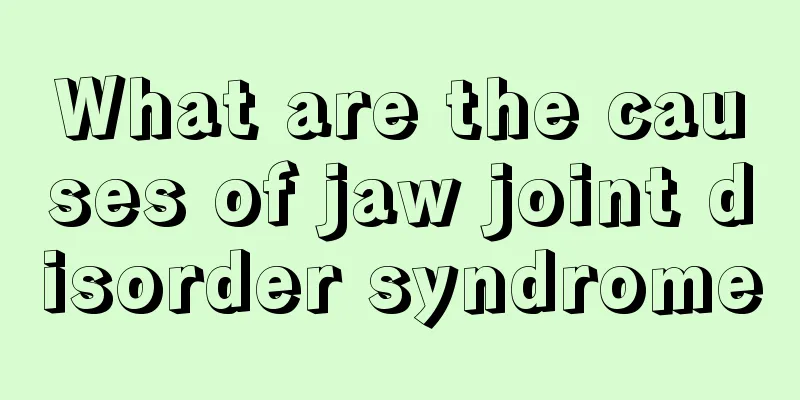How to treat uremia

|
Life is like a five-flavor jar, which often brings us different feelings. When we are happy, we laugh; when we are unhappy and sad, we cry; when we are depressed, we scream; when we are sick, we feel lonely and scared. It is often for these reasons that modern people will protect themselves well and try their best to avoid any harm. But sometimes these measures are in vain because you never know when the disease will strike you. Nowadays, men and women pay great attention to personal hygiene, because they know that not paying attention to personal hygiene often leads to urinary tract diseases. Sometimes they will experience symptoms of urgency and frequent urination, which is most likely caused by urinary tract infection. But some are not, such as uremia. Let’s talk about how to treat uremia. When chronic renal insufficiency progresses to the uremic stage, renal replacement therapy is required. There are often some patients who have entered the uremia stage but keep delaying and are unwilling to receive dialysis treatment, always worrying about the side effects, costs, etc. of dialysis. Many patients also hope that traditional Chinese medicine can "cure" uremia and get rid of dialysis. In fact, dialysis is to replace the work of the kidneys. When the patient enters the uremia stage, the patient's kidneys should be damaged by more than 90%. If it is delayed and no replacement treatment is taken, the toxins will remain in the body and cause irreversible damage to other organs of the body, such as the heart, digestive system, bones, blood system, etc. However, uremia is a disease that cannot be cured by drug treatment, and there is no so-called "magic bullet" that can cure uremia. Therefore, patients with uremia should not hesitate to take renal replacement therapy, namely dialysis treatment, in a timely manner. Common uremic emergencies include: Hyperkalemia and uremia: The kidney's ability to excrete potassium decreases, and hyperkalemia is likely to occur at this time; especially when excessive potassium intake, acidosis, infection, trauma, gastrointestinal bleeding, etc. occur, hyperkalemia is more likely to occur. Severe hyperkalemia (serum potassium > 6.5mmol/l) may lead to cardiac arrest and endanger life, and requires timely rescue: ① Calcium supplements to counteract the toxicity of high potassium to the myocardium. 10% calcium gluconate 10-20ml is usually added with an equal amount of hypertonic glucose and slowly pushed intravenously for no less than 5 minutes. If the arrhythmia does not improve after 5 minutes of injection, or if it is effective but recurs soon, another injection can be given; ② Sodium lactate or sodium bicarbonate can promote the entry of potassium ions into cells, antagonize the inhibition of potassium on the heart, and increase urinary potassium excretion; ③ The combined use of glucose and insulin (4g glucose: 1U insulin) can promote the transfer of potassium into cells; ④ Oral or injection of potassium-excreting diuretics (furosemide, torsemide, etc.) promotes renal potassium excretion; ⑤ Oral cation exchange resins promote potassium excretion from the intestine; ⑥ If hyperkalemia is very serious (>6.5mmol/l) and the above treatments are ineffective, hemodialysis treatment can be performed to lower blood potassium. In patients with heart failure, pulmonary edema and uremia, the kidney's function of regulating water-sodium balance is impaired or even lost, resulting in reduced urine output, which can easily lead to volume overload. In severe cases, heart failure and pulmonary edema may occur, which are life-threatening. The prevention and treatment measures include: ① controlling water intake so that the amount of water in is less than the amount of water out, and giving diuretics when necessary; ② hemodialysis ultrafiltration dehydration treatment; ③ cardiotonic, vascular dilation and other treatments. Metabolic acidosis: blood pH <7.2, carbon dioxide binding capacity <13mmol/l, and clinical manifestations of metabolic acidosis (loss of appetite, vomiting, weakness, deep breathing, etc.). Treatment measures: ① Intravenous supplementation of sodium bicarbonate: 5% sodium bicarbonate solution intravenous drip; ② Hemodialysis to correct acid-base imbalance. When the toxin level is high, blood creatinine ≥707umol/l, urea nitrogen ≥28.6mmol/l, and uremia symptoms are obvious, emergency hemodialysis is required to remove toxins; when serious complications such as pericarditis and gastrointestinal bleeding occur. When the above situations require emergency dialysis treatment, a blood flow pathway needs to be established through central venous catheterization. First-time dialysis patients may develop dialysis imbalance syndrome, so the first dialysis time is relatively short, generally about 2 hours. So through the above introduction, I believe everyone will have their own opinions on the disease of uremia. But no matter what your opinion is, one thing that cannot be changed is that uremia is difficult to treat. If any of your friends accidentally gets this disease, don't be too scared. The most important thing is to actively seek treatment and strive to recover. |
Recommend
What causes breast pain at 60?
For female friends, no matter at what age, they s...
How to heal oral burns quickly
The skin inside the mouth is relatively fragile. ...
The appropriate method must be used to treat rectal cancer
Nowadays, rectal cancer is considered a common tu...
Chest tightness and ulcers when hungry
It is best to eat until you are 70% full, but you...
The place where the rabies vaccine was given is red and swollen
In daily life, if you are bitten or scratched by ...
How much do you know about the causes of esophageal cancer?
In today's society, my country has also becom...
What is the best shampoo for dandruff
Many people suffer from dandruff. When we see dan...
Jeju Island Specialties
Every time after the holidays, everyone always th...
There is a lump protruding on the cervical spine
The cervical vertebra is a part of the spine and ...
Why do I always get stuck when cooking
Chinese cooking prefers to use high heat, but man...
There are pimples all over my butt
The situation where the buttocks are covered with...
What color quilt is suitable for sleeping?
The pace of development in today's society is...
What are the obvious symptoms of dampness and toxins?
When the body is in a sub-healthy state, it is ea...
Solid breast nodule 4a
Nowadays, many people are afraid of cancer, and b...
The causes of esophageal cancer are caused by the following factors
Suffering from esophageal cancer has a great impa...









